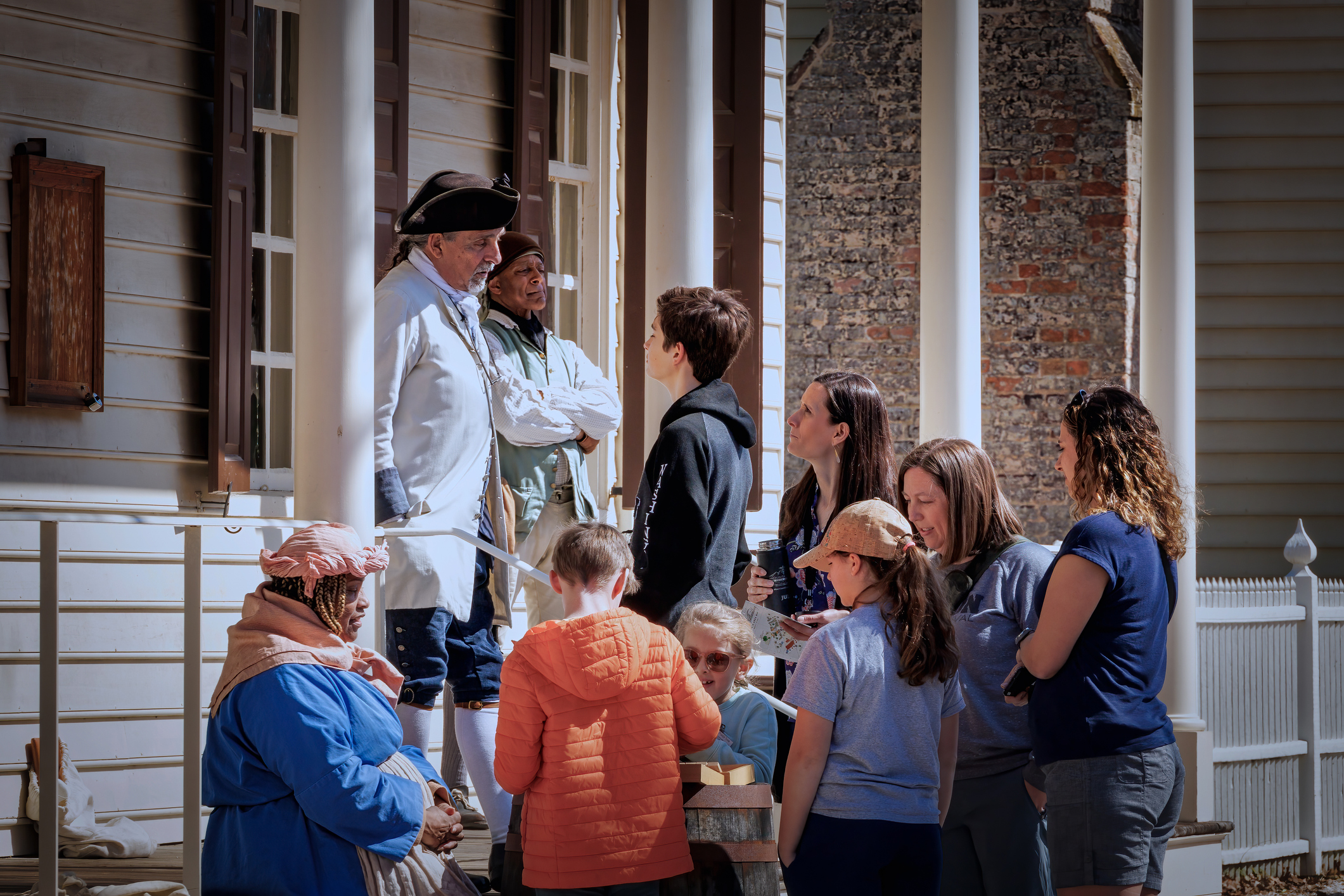Interview with Zachary Cote: Fostering Engaged Citizens by Teaching Historical Thinking

Zachary Cote is executive director of Thinking Nation, a nonprofit dedicated to promoting historical thinking practices and high-quality inquiry-based history curriculum. NASBE President and CEO Paolo DeMaria interviewed him in July 2025.
When we think about civics education, what are we trying to accomplish?
I think about it in terms of mission and vision. The vision is about what we want society to look like. The mission is about how we are going to get there. Often, in civics education spaces, we adopt the mission mindset. These are the things we want to do. But we have to ask the vision question, “Why civics?” The answer for me is that we want to create a citizenry and a society that sustains democracy.
That is the hope. We want an engaged, informed citizenry that is equipped and willing to sustain a democracy. If that is the goal we all can agree on, then we can ask, how do we do that? That’s where the conversation becomes very interesting.
What does a student’s education experience look like that supports the goal of an engaged, informed citizenry?
Because of the mission-focused mindset, when we talk about civics education, we talk a lot about civic knowledge. This is the information that we think a good citizen should know. In various states, we see a lot of civics statutes really focusing on content knowledge or specifying a graduation requirement like a citizenship test or a course on the founding principles of the Constitution. I don’t want to discount any of that, but I think that it misses the idea of what it really means to be a good citizen. A lot of how we function as citizens is driven by the dispositions we have toward whatever we are looking at.
So there needs to be an intersection. Civic knowledge—understanding the founding principles and understanding core American history—is important. But as David Hackett Fisher, a noted historian, observed over 50 years ago, there is no fact from history that every human must know. If you become the arbiter deciding what every person must know, you are bound to upset people and be challenged in a healthy way.
While civic knowledge is important, what’s beautiful about civic dispositions is asking ourselves how we can orient young people to be stronger, more engaged citizens. What needs to happen? Sometimes that might be something like civic activism, which has a very extroverted connotation, but it can also be civic dispositions, which are more reflective.
While civic knowledge is important, what’s beautiful about civic dispositions is asking ourselves how we can orient young people to be stronger, more engaged citizens.
How can a civics education manifest this intersection? How does this overlay with what your organization, Thinking Nation, is doing around history curriculum?
A lot of the way we currently measure success in history classrooms is based on our students’ ability to retell us what we told them earlier and what the standards asked us to teach. That is effective in creating walking encyclopedias, but I don’t think it contributes richly to human flourishing.
History, by definition, is a discipline. As a discipline, it has a particular epistemology and particular methodologies attached to it. The past is the content that is used to engage in that discipline. If we only focus on the content component, it’s like focusing on civic knowledge: We’re teaching the past, but we’re not teaching the study of the past. A curriculum can do a really good job of equipping students in remembering the past without giving students the tools to understand the past. This is problematic. History becomes politicized and polarized, and it’s an us-versus-them situation about the history of America. Focusing on history as a discipline and using the tools of historical thinking helps us truly understand the past.
When we learn how to wrestle with the nuances and complexity of history, we learn how to wrestle with the complexity of our present life. This is a really helpful skill, given the complex nature of living as a human being.
When we learn how to wrestle with the nuances and complexity of history, we learn how to wrestle with the complexity of our present life.
How does historical thinking apply to civics education?
There are two primary jobs of a historian, both of which are encompassed under this concept of historical thinking. Job number one is to portray the past as accurately as one can. This means to be honest and true. The second is to understand people from a time and place not like our own. Historical thinking helps us do those two jobs well.
The skills we utilize when thinking historically help orient ourselves toward what we study; that is, they are dispositions. For instance, if I’m presented with new information or a new person in my life, and my first questions are questions of causation (What got you here?) or contextualization (What shaped you?), that allows me to then use another skill or disposition, that of empathy and understanding.
The skills we utilize when thinking historically help orient ourselves toward what we study; that is, they are dispositions.
Pick any historical moment, and you can learn about the facts of that historical moment. Simultaneously, you can tell a student that you’re learning this moment through the historical thinking skill of contextualization or evaluating evidence or considering continuity and change over time. By doing so, we’re making these implicit skills explicit for students in their scholarly endeavors. They can name these processes, and the ability to name things is incredibly powerful in learning. You can’t do something well that you’ve never identified and seen done well before.
And so our hope is that these historical thinking skills become embedded across all curriculum and across all standards so you can’t look at the past without having a lens to look through. Historical thinking skills are those lenses.
Our hope is that these historical thinking skills become embedded across all curriculum and across all standards so you can’t look at the past without having a lens to look through.
How that relates to civic dispositions is fairly intuitive. If I have the skills to understand people from a time and place not like my own, I can apply that same concept to people in the present, whether my children, my neighbors, or people with whom I vehemently disagree politically. If my job is to understand, then that nurtures a sense of humility, a sense of curiosity, and a sense of empathy, which I believe wholeheartedly is essential for sustaining a citizenry and a democracy.
There is a direct correlation. The better I can use these skills in looking at information as a scholar, the better I can translate the use of those skills into these civic dispositions that I can use in my day-to-day life. Personally, I’m constantly reminded that studying history didn’t just make me a better analyst, reader, or writer but also a better husband, dad, and neighbor because of those dispositions that come out of historical thinking.
What might this look like in a classroom?
It’s really fun to see historical thinking illuminate students’ minds. I was recently with middle school students engaging in a Socratic seminar. They had a historical question around the concept of race in the 19th century and were using primary sources from the past. At the end of the seminar, one student said to the whole class that she was so confident that her thesis statement was going to be X, but after the seminar, she was convinced to change her thesis to Y. The whole class actually got upset with her, and some were even chanting “flip-flop.” We paused the class to identify this as the process of learning—historical thinking at its finest. This student was compelled by the evidence and humble enough to change her mind in the process.
In another example, also during a middle school Socratic seminar, the students were talking about the resistance of enslaved people in the 19th century. One student pushed back on the idea of the horrors of slavery and said these people had work, were provided for, and had shelter. It was a little bit of an uncomfortable situation because the student wasn’t ill intentioned at all but was essentially giving this system, this original sin of slavery, a pass.
This was a classroom that was made up of only Black and brown students, so this was a really interesting dynamic to emerge. In response, one of the students began to read an excerpt from Frederick Douglass’s first autobiography, and they pointed out the emotion in his words when he talked about his own situation when enslaved. They used primary sources and past narratives to humble the other student and stated something like, “I don’t know if you were doing a good enough job understanding the past on its own terms. I think you are making some presumptions.” It was a really cool moment where the primary sources of the past shaped an intellectual conversation in a way that actually strengthened the community in the classroom.
I was in a high school classroom recently where the students were reading testimony presented by the NAACP during the debate over the New Deal. The students kept observing how the New Deal was not supporting Black Americans, and the conversation was all about that. But then another student started to think historically about the situation. She says, “Wait a minute.” She noted that you can see the system starting to open up, because here you have the NAACP on the floor of the House of Representatives, giving testimony on behalf of Black Americans in a way that just a few years before couldn’t have happened. In it, she saw a glimmer of progress, despite the evidence of discrimination.
That was her being able to think contextually. This is what the document is saying, but what is the document doing? What is between the lines? She was looking at the audience, [asking] who is this for? Who’s missing here? And why does that matter? For historians, no primary source is created in a vacuum.
In these instances, students elevated the inquiry process in the classroom and showed their curiosity. They created space for tense, but also productive conversations around complex issues. A mere recital of past facts and events does not allow for the same process.
Let’s take it outside of the classroom and imagine these students watching a protest in their town about a controversial issue. What happens?
What historical thinking can do is ensure that curiosity and understanding is more important than being right—not that you can’t also be right. It’s often said that if you’re debating someone, make sure that you can articulate their point of view in a way that they agree with. Then you can critique them more effectively. This necessitates a sense of understanding.
What historical thinking can do is ensure that curiosity and understanding is more important than being right.
If you’re thinking of that protest example, historical thinking forces you to ask the first question about why people might feel this way. Or what led to these feelings? What escalated them? These are questions of contextualization and causation. How is this similar to other experiences that I’ve maybe felt before?
That pushes us into looking at perspective or change over time. An inquisitive citizenry is usually a humbler, more engaged citizenry, which is the goal. Curiosity is more important than being right.
Another practical example relates to the internet. We’re constantly confronted with so many different theories, ideas, or statements of seeming truth. The first thing a historian does is ask about the source. What is this source? Who is this source? What credibility does this source have? What expertise comes from this source? That discernment can be cultivated in an academic setting, when you’re regularly thinking historically.
How do civics and civility go hand in hand?
One of our nation’s mottos is “E pluribus unum,” which means, “Out of many one.” This is the concept of pluralism. Whether you want to admit it or not, we live in a pluralistic society where people don’t all see the same way all the time. We can either make it a battle for power, or we can strive for more understanding and cohesion.
Civility is another one of those civic dispositions. Civility is not a part of civic knowledge. You may read stories of civility, but you don’t learn civility if the focus is only civic knowledge. A disposition is something that needs to be practiced, and civility is such a disposition. Learning to think historically enables you to practice civility because conversations become about understanding something better and asking questions to further that understanding rather than just to prove a point. If your sole goal is to prove a point, you’re inevitably going to become more aggressive because you’re going to have to double down.
Learning to think historically enables you to practice civility because conversations become about understanding something better and asking questions to further that understanding rather than just to prove a point.
Philosopher G.K. Chesterton observes that if a reason is guiding your patriotism, you’re going to do whatever you can to maintain what you hold dear about your country. If your patriotism is just based on accomplishments—America is great because she did such and such—it becomes shaky. But if your patriotism transcends accomplishments—he called it transcendental patriotism—you’ll be in a better place to critique and still appreciate and support your country.
The same thing [applies to] our interpersonal communications. If it becomes all about reasons why we’re right or you’re wrong, we double down in such a way that reinforces our anger and our frustration. But if we are willing to first recognize that the people we’re talking to are human beings like us, if that becomes the baseline, we’re much more willing to ask questions of understanding, which transcends the need to be right. It’s humbling, and humility is healthy. It’s also a really good practice to reduce stress. This is healthy for democracy.
How should state policymakers engage in promoting quality civics education? What states are doing this right?
Delaware, Maryland, and Kansas rewrote their standards to focus on the discipline of history rather than prioritizing content over dispositions. Yes, they still have statutes that prioritize particular pieces of content, but that doesn’t diminish the fact that their standards are rooted in the tools of the discipline. Can students contextualize or assess causality? Can they evaluate evidence and articulate their arguments? These skills are the foundation of their standards. In fact, Delaware’s history assessments ask students to contextualize their responses to identify causes and effects. They reflect the tools of the discipline.
Delaware, Maryland, and Kansas rewrote their standards to focus on the discipline of history rather than prioritizing content over dispositions.
What I love about these states is that they took a step back. They asked if social studies can sustain a citizenry and a democracy and what do citizens need to be able to do? That’s how they started writing their standards. Creating a new framework is something that needs to be considered at the policy level. A quality framework around historical thinking can apply across all the different content areas, regardless of whether the subject is ancient civilizations, medieval world history, early US history, or anything else. Teachers can effectively align their instruction and create a vertically aligned experience for their students. If our standards set out a framework of these historical thinking skills, we’ve given every teacher teaching those content areas a common language for learning and collaboration. This is incredibly helpful for when you’re trying to grow student progress over the course of multiple years in their academic career.
We’re seeing more and more civics legislation coming in through states, which is great. But I fear that it’s really heavy on civic knowledge, and we’re creating this hierarchy of what a good citizen needs to know, not how a good citizen interacts with their fellow citizens. My challenge to policymakers, especially with America’s 250th birthday coming up, is that we really consider the integration of civic dispositions into these pieces of legislation around civics education. If we don’t, I am worried we’re going to create more walking encyclopedias rather than humble and curious citizens, passionately committed to preserving democracy.
Also In this Issue
The Challenges of Crafting Excellence in Civics and History for All
By Danielle Allen, Paul Carrese and Louise DubéThree authors of Educating for American Democracy revisit five aims depicted in their roadmap—and the miles to go.
The State of Youth Civic Engagement
By Jessica Sutter and Audra WatsonUnderstanding young people’s attitudes toward democratic participation can help states summon the resolve and the wisdom to strengthen civics learning.
Six Things State Leaders Can Do to Invigorate US Civics and History Learning
By Chester E. Finn Jr.Broad public agreement on what students ought to learn should propel their efforts, as should the lack of confidence in democratic institutions.
The Science of Experiential Civics
By Pamela Cantor MD, Fernande Raine and Susan RiversYoung people are wired for civics learning that connects them to their communities, builds their agency, and leverages relationships.
Recognizing Students and Schools for Civics Learning
By Andrea Benites, Lisa Boudreau and Shawn HealyTo boost critical knowledge and skill building, some states offer diploma seals and school recognition programs.
Preparing Students for Informed, Active Citizenship: Lessons from Illinois
By Kei Kawashima-Ginsberg and Mary Ellen DaneelsIllinois Democracy Schools are a key element of the state’s comprehensive approach.








 i
i
 i
i
 i
i